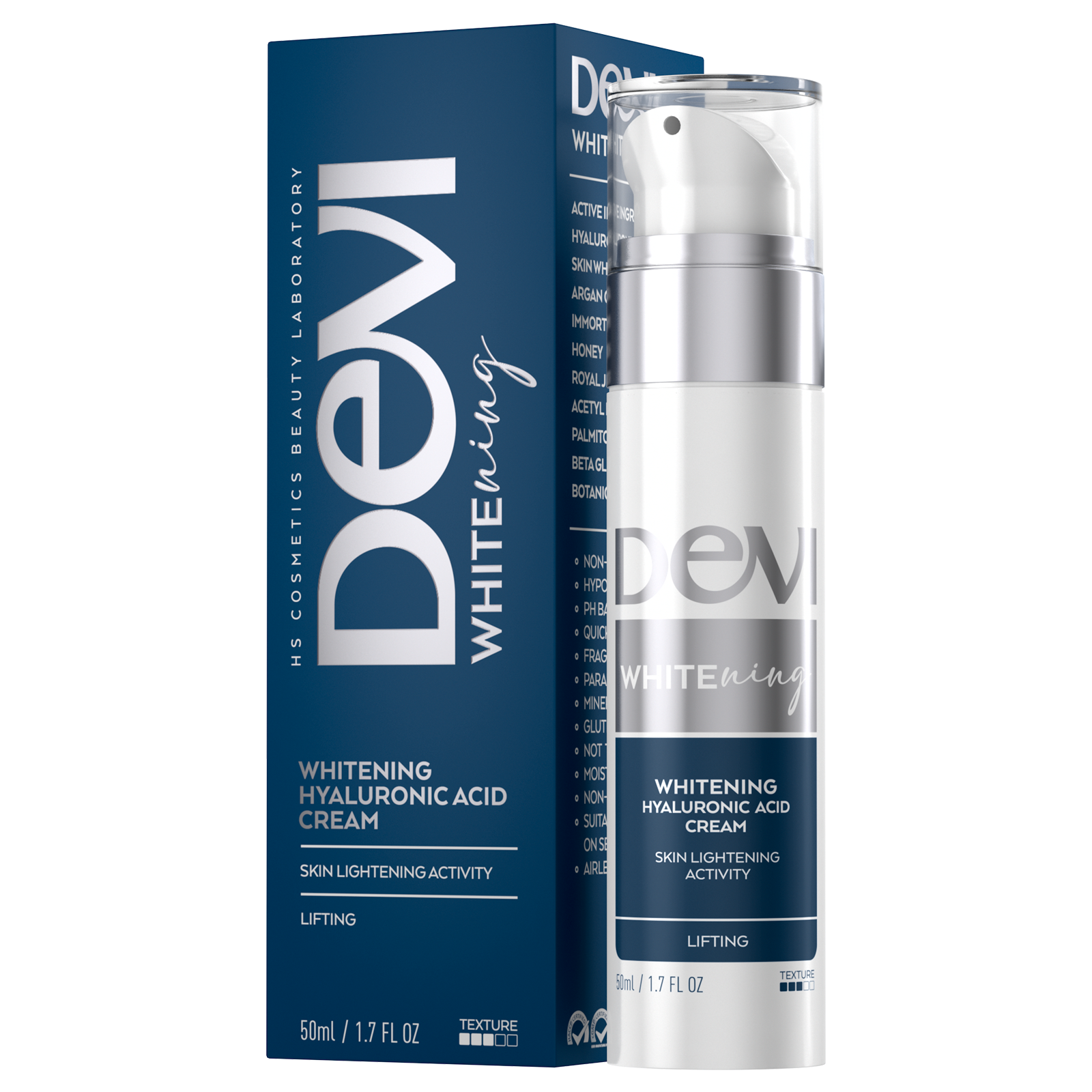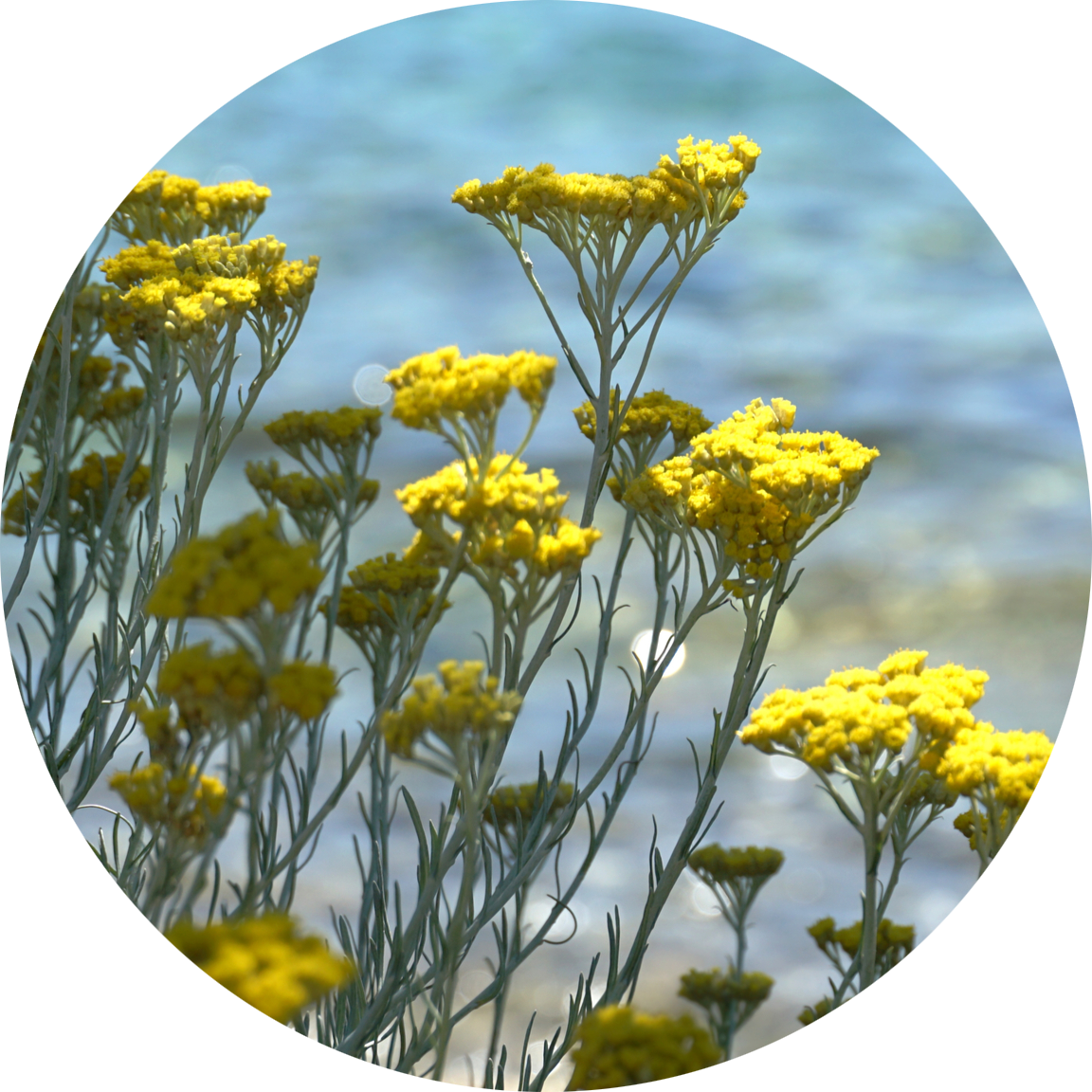(Helichrysum italicum)
Its golden flowers, which reflect the sun, were an inspiration for its scientific name Helichrysum; they adorn rocky cliffs throughout the Mediterranean. Immortelle is a bush that grows up to 70 cm in height and is captivating not only with its beauty, but also with its characteristic scent which is reminiscent of curry spice. It blooms in May and June and is proof that life and beauty can survive even in the harshest of conditions. This typical representative of xerophyte plants – those that have the ability to store water and thus survive even on dry, hot rocks – is just as adaptable to survive even at an altitude of over 2,000 metres. That is why it has earned its name – immortelle – immortal.
Immortelle thus shows us how to persevere when the going gets tough; its resistance revealed to our ancestors that it concealed more than just its external beauty and fragrance. Theophrastus of Eresos, a pupil of Plato and Aristotle, in his Enquiry into Plants (Historia Plantarum) mentioned the healing properties of this plant for burns and poisonous snake bites. A few centuries later, Dioscorides – in his pharmacopoeia De materia Medica – mentioned its diuretic properties and that it could help with urinary disorders, hernia and sciatica. There are several subspecies of immortelle that differ depending on the region in which they thrive, but all are therapeutic and have been present in folk medicine for centuries – from the east to west Mediterranean. In Turkey, immortelle is an indispensable ingredient in therapies for diabetes, skin injuries or urinary problems, while in Spanish traditional medicine it is used against skin inflammation, toothache and stomach disorders. In the Balkans, immortelle has been used over the centuries to treat numerous skin problems, swellings, scars, inflammation, respiratory problems, allergies, liver and pancreatic diseases.
IMMORTAL PLANT’S HEALING POWER
The first scientist in modern times to look into the healing properties of immortelle was Leonardo Santini, an Italian physician who worked in Italy in the 1930’s. He noticed that his patients who suffered from psoriasis, gonarthrosis and arthritis experienced significant improvement after using this plant’s extract. Unfortunately, his discoveries were not taken seriously, so immortelle, at least as far as science was concerned, fell into oblivion until the beginning of this century, when it began to experience a renaissance. Laboratory research has, for the umpteenth time so far, confirmed that folk medicine was right all this time. Immortelle extract contains extremely therapeutic ingredients: a high percentage of monoterpenes: neryl acetate, neryl propionate, alpha pinene, as well as geraniol, geranyl acetate, sesquiterpenes, nerol, linalool, limonene, ar-curcumene, gamma-curcumene, rosifoliol and an abundance of flavonoids. The level of valuable ingredients varies depending on the environment in which the plant grows.
The traditional use of immortelle to treat inflammation makes a lot of sense thanks to flavonoids, primarily gnaphalium and pinocembrin, which inhibit the production of leukotriene b4, a lipid mediator responsible for inflammatory processes. Arzanol, a pyrone found in immortelle, has strong antioxidant properties and prevents inflammation, so it can be useful for the treatment of cancer. This plant is completely safe, both for topical and internal usage.
Immortelle has strong antimicrobial action – numerous studies have proven its ability to inhibit the growth of a number of pathogens: Staphylococcus aureus, Streptococcus mutans, Enterobacter aerogenes, Escherichia coli, Acinetobacter baumannii, Pseudomonas aeruginosa, Candida albicans, Herpes simplex virus, Propionibacterium acnes… This plant improves the action of penicillin and ampicillin, which is very important nowadays when many microbes are becoming more and more resistant to antibiotics. There is also scientific evidence that arzanol obtained from immortelle successfully inhibits HIV, in addition to its anti-inflammatory effect.
Just as Theophrastus noticed a long time ago, today we know with certainty that immortelle is an excellent insect repellent: research has shown that it is very effective against mosquitoes. Mosquitoes are carriers of numerous diseases, from malaria to yellow fever, and immortelle extract affects the larvae of these insects: in a concentration of 300 ppm, the mortality of larvae is as high as 100 percent.
IMMORTELLE AND THE SKIN
The most important reason that immortelle has received the recognition it deserves today is its miraculous effect on the skin. Immortelle oil protects the skin from pollution and oxidative stress caused by the harmful effects of ultraviolet rays, so it is an excellent prevention against melanoma. Flavonoids from this plant are a natural protective UV factor, which is not surprising, considering that immortelle survives in the strong Mediterranean sun. Just as it acts as protection against the Sun, immortelle has the ability to reduce the negative effects after sun exposure, alleviate burns, inflammation and damage. Some studies have shown that the anti-inflammatory effect of immortelle extract can be compared with that of corticosteroids; the extract does not cause any harmful effects and hence can be used indefinitely. That is why it is ideal for chronic inflammation, which Dr Santini identified when he noticed immortelle’s effect on his patients that suffered from psoriasis. Immortelle is therefore ideal for treating postoperative wounds, because it removes bruises and contributes to better healing and less visible scars, in addition to reducing inflammation and preventing infections. It is also helpful for diabetics with diabetic wounds.
The anti-inflammatory and antibacterial properties of immortelle are also valuable for people who suffer from acne. This plant primarily has a preventative effect against Propionibacterium acnes, the bacterium that causes acne; when it comes to existing ones, immortelle reduces inflammation, accelerates pore closing and healing and prevents the formation of spots.
The plant that has the Sun in its name does not allow it to impair our health or beauty. Skin blemishes – hyperpigmentation – are a frequent consequence of sun exposure, and great enemies of a beautiful complexion. That is why immortelle oil has found its way into Devi cosmetics: in the Whitening Cream, alongside an abundance of precious ingredients, this wonderful plant also contributes to a radiant, even complexion and soothes blemishes and freckles caused by sun exposure. The Whitening Cream additionally tightens and regenerates the skin and reduces the visibility of small wrinkles, gives the skin a velvety texture and a healthy look. An immortal plant for our immortal, eternal beauty.

